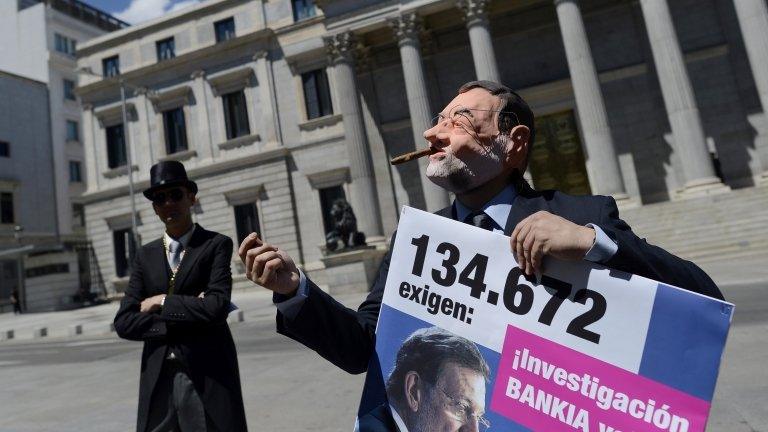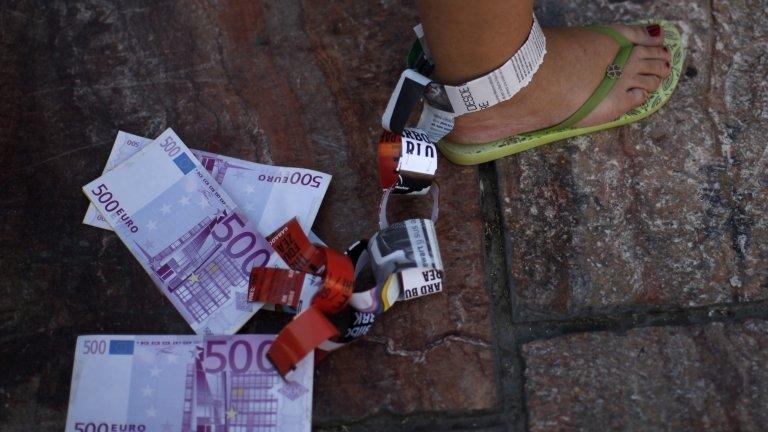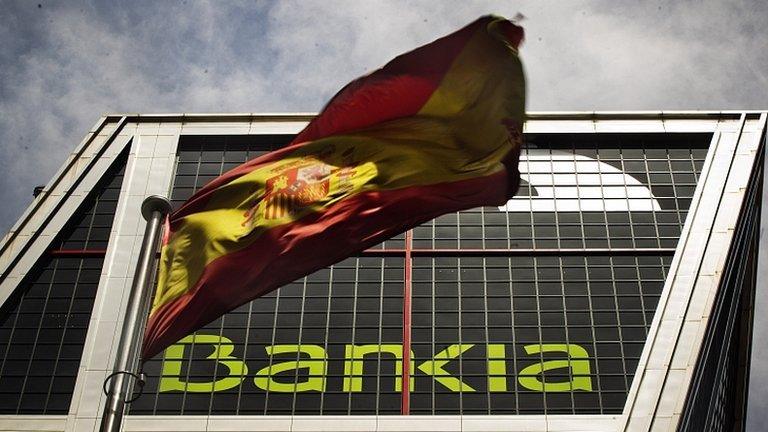Eurozone banking union: The big bazooka
- Published
- comments
EU officials call for European banking union
The European Council looks set to approve the first stage of a eurozone banking union at its meeting in late June.
President Jose Manuel Barroso's call in the Financial Times, external for Europe to create a single banking regulation system and a financial backstop is highly significant: Germany is believed to support a move to create at least stage one of the union rapidly, ie common supervision, with 1 January 2013 mooted as the start date.
However, a full banking union, in which the eurozone states agree to a common deposit guarantee, with the implied support of the eurozone states for systemically important banks would need a treaty change.
The UK government "quad" met last week to discuss the move and supports it, including the creation of a pan-euro backstop for the banks. However, the UK will remain outside, and will demand a strengthened 27-member single market in financial services.
I understand that the ECB backs the plan, but the UK government believes Germany is not yet persuaded of the full fiscal union.
The Barroso proposal aims to quickly create a common bailout fund backed by levies on the eurozone banks, skirting the need for direct fiscal transfers. The UK government believes the plan as outlined in the FT interview is achievable without treaty change.
Barroso's move comes as Spain's borrowing costs spike above 6.5%, raising fears that the tempo of crisis could outrun that of the policy makers.
Nevertheless, what is clear today is that the EU policy elite has chosen banking union as the circuit breaker rather than an attempt to create ever larger firewalls around sovereign debt.
This is logical since the critical mass is now in the banking system, not the sovereign debt markets.
- Published12 June 2012

- Published11 June 2012

- Published11 June 2012
